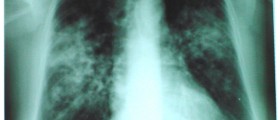
What is toxoplasmosis?
Toxoplasmosis is an infection caused by a parasite called Toxoplasma gondii or T. gondii. This parasite can affect humans, most mammals and even some species of birds. It as been isolated everywhere in the world, except for the Antarctica.
T. gondii affects a great portion of the world’s population but it rarely causes any health issues. This means that for most people who have T. gondii in their body, toxoplasmosis never develops. However, in some people, who are for certain reasons at higher risk of toxoplasmosis, it can cause severe health problems.
Toxoplasmosis is dangerous if it affects fetuses, newborns, elderly and people whose immune system is seriously compromised, especially if the defect is related to T-cells, like patients who suffer from AIDS and hematologic malignancies or who have had organ or bone marrow transplants.
T. gondii can be contracted by eating contaminated and undercooked meat, especially pork, venison and lamb. It can also be contracted through contact with surfaces of utensils used for preparing contaminated meat.
Another way of transmission is through contaminated cat feces, for example when cleaning a cat’s litter box.
Acute toxoplasmosis
Acute toxoplasmosis is characterized by the onset of flu-like symptoms, such as fatigue, headache, muscle ache, weakness and swollen lymph nodes. These symptoms last at least one month. Eye damage is rarely seen in patients with normal immune system function. In children, elderly and people who have problems with their immune system, toxoplasmosis may cause serious problems, such as encephalitis or eye problems like necrotizing retinochoroiditis.
As for the swelling of the lymph nodes, it can affect one or more groups of nodes, in the neck, armpit or groin. This disease can also affect the liver, heart and inner ear.
Treatment for acute toxoplasmosis
Toxoplasmosis is treated with medications that aim to destroy the parasite. Various drugs can be used, depending on the patient, his or her medical history, severity of the infection and of the symptoms. Any underlying condition that might be present should be taken into consideration when choosing the best treatment plan for toxoplasmosis.
An antimalaria medication called pyrimethamine is often administered to patients who suffer from toxoplasmosis. It is usually used in combination with an antibiotic called sulfadiazine. Since this combination therapy carries a certain risk of trombocitopenia, folinic acid is usually given along with it.
Clindamycin is the antibiotic usually given to AIDS patients with toxoplasmosis, while spiramycin is given to pregnant women to protect the unborn baby.

















Your thoughts on this
Loading...